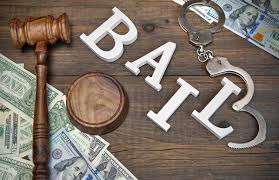Select the Best Bail Bondsman
 A bail bondsman is a person who ensures the payment of an offender’s bond among other services to persons who find themselves in legal difficulty. The court may occasionally release the accused from custody if the criminal can afford the statutory security amount. In some circumstances, the suspect is unable to pay the surety amount, therefore his family contacts the bondsman for assistance in making the payment. In some situations, these agents will settle the debt on the client’s behalf. The family will either pay a premium on the payable amount or sign over a lien on personal property once this is completed. Have a look at Bail Bonds for more info on this.
A bail bondsman is a person who ensures the payment of an offender’s bond among other services to persons who find themselves in legal difficulty. The court may occasionally release the accused from custody if the criminal can afford the statutory security amount. In some circumstances, the suspect is unable to pay the surety amount, therefore his family contacts the bondsman for assistance in making the payment. In some situations, these agents will settle the debt on the client’s behalf. The family will either pay a premium on the payable amount or sign over a lien on personal property once this is completed. Have a look at Bail Bonds for more info on this.
If the suspect fails to appear, the agent has a specific responsibility to ensure that the bail is paid in full. The bondsman frequently requires the offender’s family to pay at least 10% of the sum owed since he stands to lose a significant amount of money if the accused fails to appear in court. A lien on the family’s personal possessions or property, such as a house, land, or other assets, must also be signed over. A service fee of several hundred dollars may also be charged.
If the bail is set at $10,000, the defendant must pay $1,000 to the bail agent (10 percent of the total amount). If the perpetrator shows up on the agreed-upon date, the agency does not have to pay anything.
The bondsman discusses the client’s background and criminal history in order to determine whether or not the person is likely to miss court appearances. He completes the paperwork and records it in his or her files. In order to get the defendant out of jail, he works quickly. The defendant is allowed to leave once released; but, he or she must agree to return on the scheduled date.
There are various different kinds:
* Surety bond—an agent promises to pay if the accused fails to appear in court.
* Cash bail-when the perpetrator is required to post bail in cash rather than assets.
* Property—when a lien is placed on a property to ensure payment.
* Release on Personal Recognizance—the accused is freed on their own recognisance, with no pecuniary incentive to return.
* Unsecured Personal: If the offender fails to attend, a monetary penalty will be imposed.
* Secured Personal—in this case, the suspect is permitted to post his or her own bond with the court.
* Pretrial Release: An officer from the pretrial release unit accepts to take the defendant’s case, and the accused is released after completing the program’s specified requirements.


